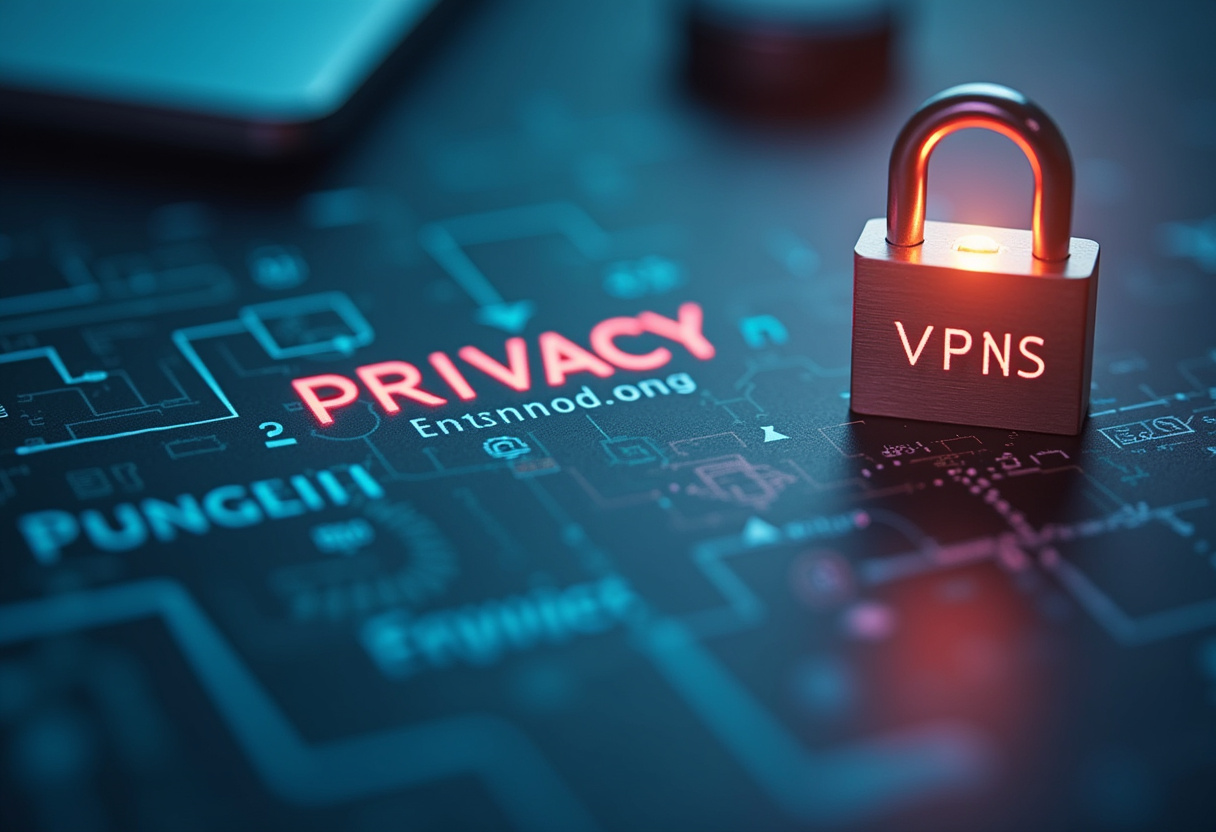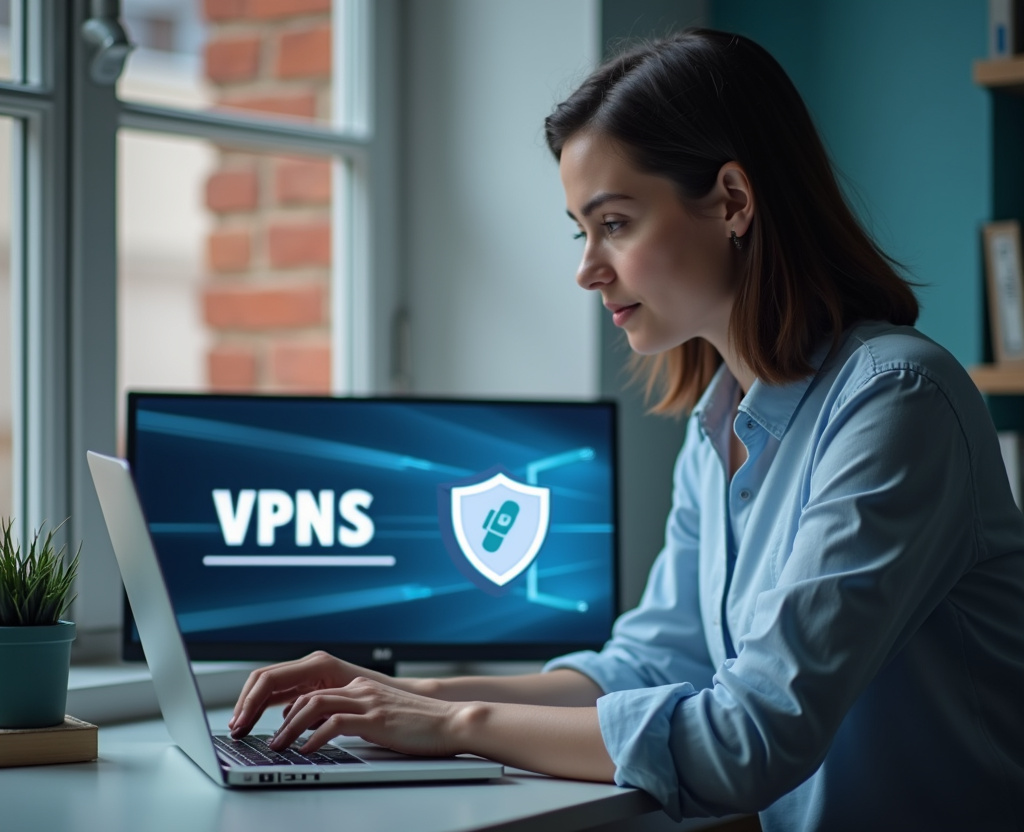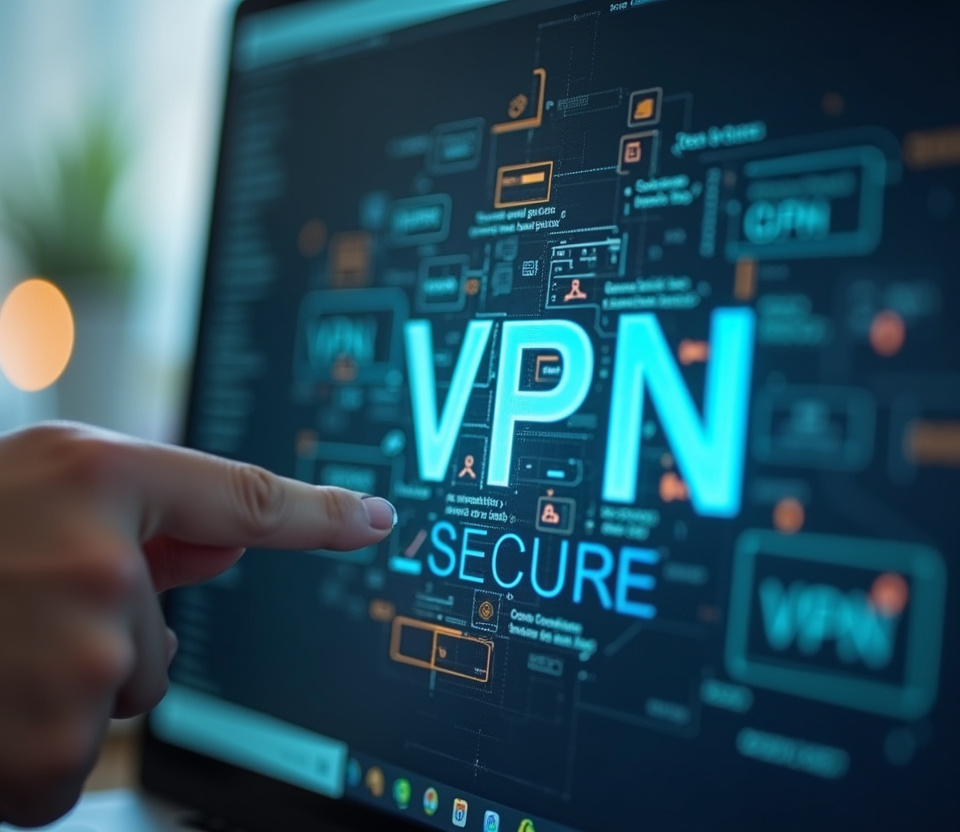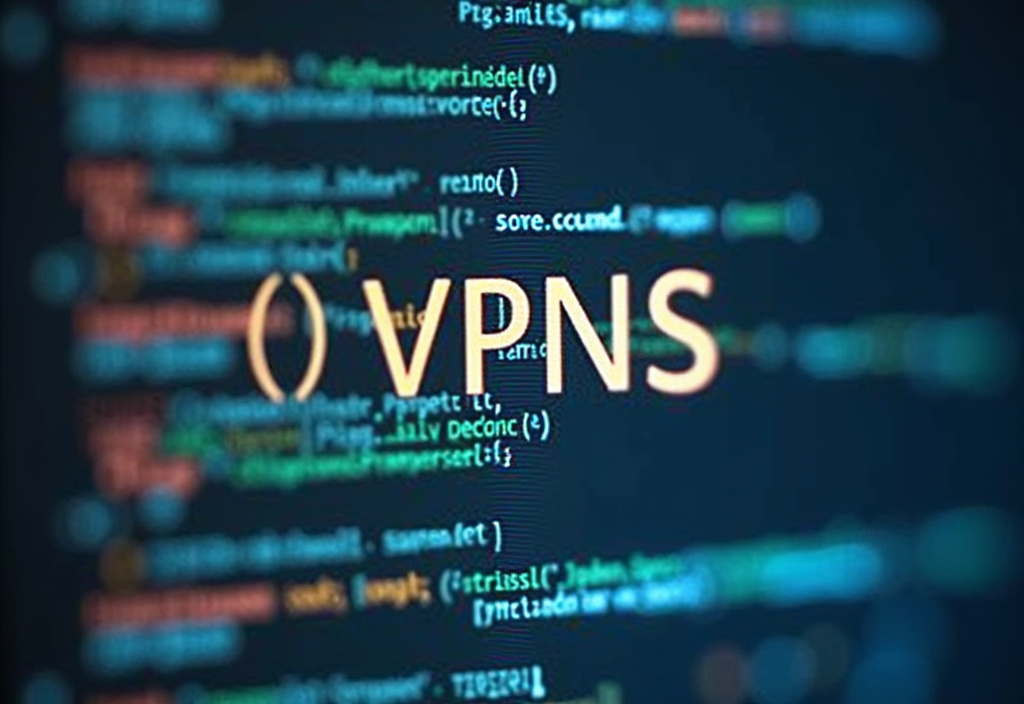VPNs for Educational Collaborations: Securing Academic Exchanges
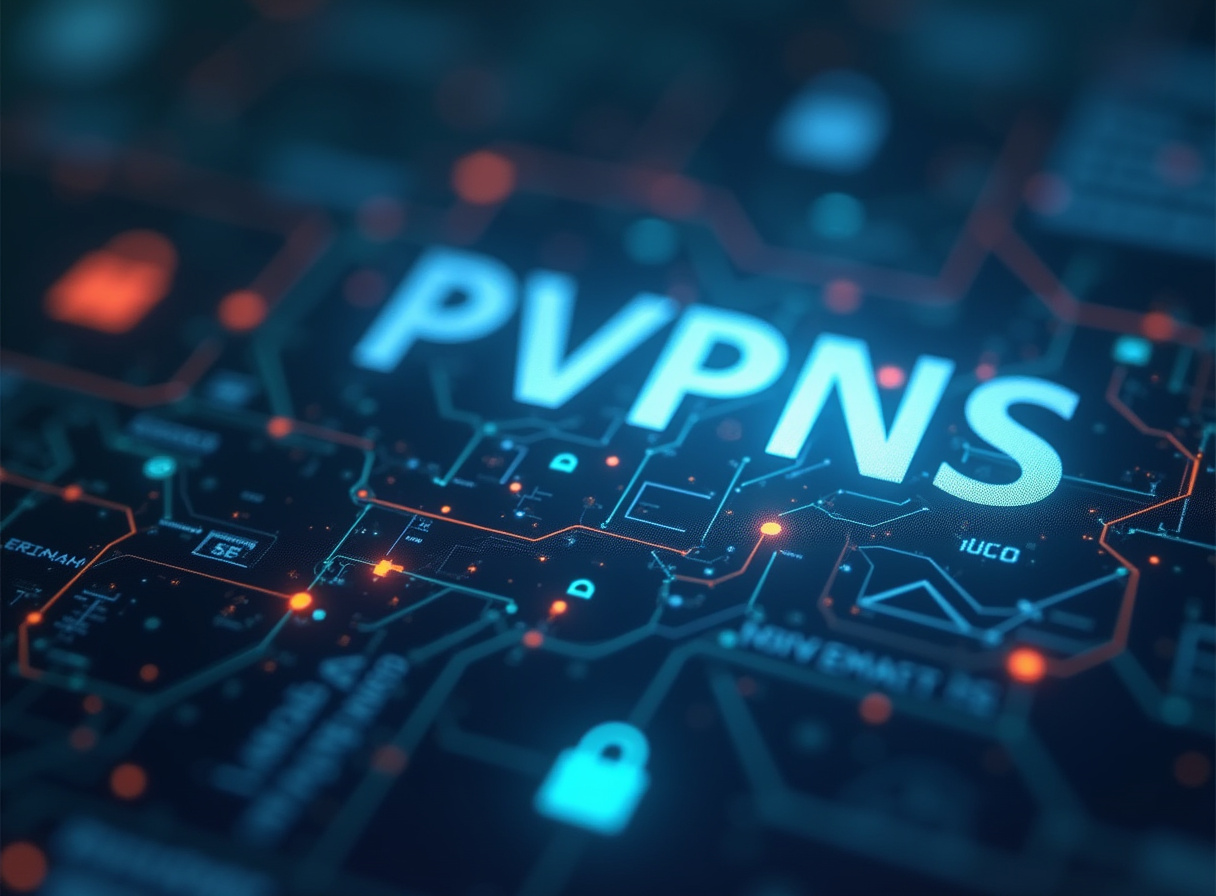
Table of Contents
Protecting Collaborative Learning Environments with VPNs
In an era defined by interconnectedness and the burgeoning landscape of digital learning, educational institutions are increasingly engaging in collaborative projects that transcend geographical boundaries. These collaborations, while offering unprecedented opportunities for knowledge sharing and academic enrichment, also introduce a complex web of security and privacy challenges. The sensitive nature of student data, research findings, and intellectual property necessitates robust security measures to safeguard against unauthorized access, data breaches, and cyber threats.
As educational institutions embrace the digital realm, the implementation of a Virtual Private Network (VPN) emerges as a critical component of a comprehensive security strategy, ensuring the secure and seamless flow of information in educational collaborations. Understanding the intricacies of how a educational collaboration VPN enhances academic security, bolsters student data protection, and reinforces privacy is paramount for any institution seeking to leverage the benefits of collaborative education in a safe and responsible manner. This article will delve into the multifaceted role of VPNs in educational collaborations, exploring their key benefits, practical applications, and essential considerations for successful implementation, enabling institutions to foster a secure and trustworthy environment for academic exchange.
The challenges of maintaining robust academic security are amplified in collaborative settings, necessitating innovative solutions like the educational collaboration VPN. These networks provide a secure conduit for data transmission, shielding sensitive information from prying eyes and guaranteeing that only authorized parties can access confidential resources. Implementing strong encryption protocols is essential.
Advanced Encryption Standard (AES) with 256-bit keys, for instance, is frequently utilized to scramble data, rendering it incomprehensible to unauthorized individuals. Regular security audits and penetration testing can further enhance the robustness of these networks. By identifying vulnerabilities and rectifying weaknesses proactively, institutions can safeguard their academic assets and ensure the integrity of their collaborative endeavors.
Furthermore, integrating multi-factor authentication (MFA) adds an extra layer of security, requiring users to verify their identities through multiple channels before gaining access to the VPN. This approach significantly reduces the risk of unauthorized access, even if a password is compromised. In the collaborative education landscape, student data protection is of utmost concern.
Educational collaboration VPNs provide a secure environment for transmitting and storing student information, safeguarding against privacy breaches and identity theft. Compliance with data privacy regulations, such as GDPR and FERPA, is paramount. VPNs can contribute to compliance by ensuring that data is encrypted during transmission and that access controls are in place to restrict unauthorized access.
Establishing clear student data protection governance policies is crucial to regulate the handling, storage, and sharing of student data. Data minimization practices should be implemented to collect only the data that is absolutely necessary for the specific collaborative project. Furthermore, providing students with greater control over their personal data and transparency regarding how it is used can foster trust and reinforce the ethical dimensions of educational collaborations.
The ability to guarantee student data protection is related to maintaining complete privacy especially in instances like storing students healthcare. The deployment of educational collaboration VPN allows institutions to create a safe area for international cooperation by removing many privacy concerns. These resources include research data and contact details for faculty members and pupils.
In any cooperative project, guaranteeing privacy fosters students confidence and makes it easier to exchange ideas and discoveries with no worries about the potential of a data breach. In conclusion, using VPNs for educational collaboration is a crucial step that enhances academic security, supports privacy, and protects student data. Higher education institutions can establish a reliable and secure ecosystem that maximizes the potential benefits of collaborative research and learning in the constantly changing digital era by using strong encryption, regular audits, and stringent data governance rules.
Enhancing Data Security in Academic Exchanges
The core strength of a educational collaboration VPN lies in its ability to create a secure, encrypted tunnel for data transmission. When data leaves a user's device or an institution's network, it is scrambled using complex algorithms, making it unreadable to anyone who might intercept it. This encryption process ensures that sensitive information, such as student records, research data, and confidential communications, remains protected from eavesdropping and unauthorized access.
The VPN also masks the user's IP address, effectively concealing their location and identity. This anonymity further enhances privacy, protecting individuals from surveillance and potential tracking. In collaborative projects involving multiple institutions, a VPN can establish a secure connection between their networks, allowing them to share resources and data without exposing their internal infrastructure to the public internet.
This approach significantly reduces the risk of cyberattacks and data breaches, creating a safe and trusted environment for collaboration. Choosing the right VPN protocol is essential for optimizing security and performance. OpenVPN, known for its robustness and flexibility, is a popular choice for educational institutions.
SSTP is another reliable option, particularly for Windows-based environments. IKEv2/IPsec offers a good balance of speed and security, making it suitable for mobile devices and remote access. Understanding the strengths and weaknesses of each protocol is crucial for making an informed decision that aligns with the specific needs and infrastructure of the collaborating institutions.
Factors like the level of encryption, speed requirements, and the operating systems used across the collaborating institutions should all inform the protocol selection process. Furthermore, the ease of deployment and management should also be considered, as a complex protocol may require specialized expertise to maintain effectively. In addition to encryption and IP address masking, a VPN can also provide protection against malware and phishing attacks.
Some VPN services include built-in firewalls and anti-malware software that can block malicious traffic and prevent users from accidentally downloading harmful files. This proactive approach to security can significantly reduce the risk of infection and data loss. Implementing a VPN for schools can be a game changer.
It allows schools to protect their data and also their students while navigating through internet. To further enhance academic security, institutions should implement a layered security approach that combines education collaboration VPN technology with other security measures, such as firewalls, intrusion detection systems, and endpoint protection. Regular security audits and vulnerability assessments can help identify weaknesses in the security posture and ensure that all systems are properly protected.
Using penetration tests and understanding the points of failure and their potential costs. Education and training are also essential components of a successful security strategy. Students, faculty, and staff should be educated about the importance of security and privacy and trained on how to use the VPN and other security tools effectively.
By fostering a culture of security awareness, institutions can empower individuals to make informed decisions and protect themselves from cyber threats. Security awareness programs should cover topics such as password hygiene, recognizing phishing emails, and the importance of reporting suspicious activity. The increasing threat landscape necessitates a proactive approach to academic security.
Educational collaboration VPNs are essential to mitigate risks and ensure the integrity of sensitive information and research. By implementing a comprehensive VPN strategy, educational institutions can create a secure and trusted environment for collaboration, fostering innovation and knowledge sharing while safeguarding their valuable assets.
VPNs for Secure Access to Shared Educational Resources
Academic security extends beyond simply protecting data in transit; it encompasses the entire lifecycle of information, from its creation and storage to its eventual disposal. A VPN can play a crucial role in securing each stage of this lifecycle. For instance, when research data is being collected or analyzed, a VPN can ensure that the connection between the researcher's device and the data repository is encrypted, protecting the data from interception.
When data is stored on a cloud server, a VPN can provide a secure connection for accessing and managing the data, preventing unauthorized access. Even when data is being deleted or destroyed, a VPN can ensure that the process is carried out securely and that no remnants of the data are left behind. This comprehensive approach to security ensures that sensitive information is protected at every point in its journey, minimizing the risk of data breaches and unauthorized disclosure.
Employing encryption protocols and other security measures when transmitting data to external partners is a large part of how VPNs ensure better academic security. One of the key challenges in academic collaborations is maintaining data integrity. A VPN can help ensure that data is not tampered with during transmission by using cryptographic techniques to verify the authenticity and integrity of the data.
This means that any attempt to alter the data will be detected, preventing malicious actors from manipulating research findings or compromising student records. Data integrity checks can include hash functions and digital signatures, which can be used to verify that data has not been altered since it was created. By implementing these measures, institutions can ensure that the data used in collaborative projects is accurate, reliable, and trustworthy.
Privacy is a right that should be maintained at all costs, so having resources like VPNS improve security and therefore maintain privacy. Protecting your right to privacy is a shared responsability. In addition to protecting data from external threats, VPNs can also help mitigate insider threats.
By implementing strict access controls and monitoring user activity, institutions can detect and prevent unauthorized access to sensitive information by internal users. VPNs can also be used to segment the network, limiting access to specific resources based on user roles and responsibilities. This approach can help reduce the risk of data breaches caused by negligent or malicious employees.
Moreover, logging and auditing capabilities can provide a detailed record of user activity, allowing institutions to investigate security incidents and identify potential vulnerabilities. When choosing a VPN for educational collaborations, it is important to consider the scalability of the solution. The VPN should be able to accommodate the growing needs of the institution and its collaborative partners.
It should also be easy to manage and maintain, with centralized management capabilities and automated provisioning. Scalability also means that the VPN solution is able to support a large number of concurrent users and connections without compromising performance. This is particularly important for institutions with a large student body or extensive collaborative partnerships.
Finally, it is important to choose a VPN provider with a proven track record of security and reliability. The provider should have a strong security posture, with robust encryption protocols and a commitment to protecting user privacy. It should also have a reliable infrastructure, with redundant servers and failover mechanisms to ensure uptime.
Furthermore, the provider should offer excellent customer support, with knowledgeable and responsive staff who can assist with any technical issues or security concerns that may arise. It is also important to carefully review the provider's privacy policy and terms of service to ensure that they align with the institution's data privacy requirements. Using a VPN for schools can be crucial and that is why it is important to pick the best solution for each school and college to protect their data from the most varied attacks.
Ensuring Privacy and Compliance in Global Educational Partnerships
Student data protection is a cornerstone of ethical and responsible educational practices. Educational collaboration VPNs provide a vital layer of security to safeguard sensitive student information, including personally identifiable information (PII), academic records, health information, and financial data. The encryption provided by a VPN ensures that this data is protected during transmission and while stored on remote servers, preventing unauthorized access and mitigating the risk of identity theft or other malicious activities.
Compliance with data privacy regulations, such as the Family Educational Rights and Privacy Act (FERPA) in the United States and the General Data Protection Regulation (GDPR) in Europe, is paramount for educational institutions. These regulations impose strict requirements on the collection, use, and disclosure of student data. Educational collaboration VPNs can assist institutions in meeting these requirements by providing a secure environment for processing and storing student data, implementing access controls to restrict unauthorized access, and providing audit trails to track data access and modifications.
Strong data governance policies, outlining who gets access and how that process is audited and can be made accountable. Beyond regulatory compliance, ethical considerations play a significant role in student data protection. Institutions have a moral obligation to protect the privacy and security of their students' data.
Data breaches can have serious consequences for students, including identity theft, financial loss, and reputational damage. By implementing robust data protection measures, such as educational collaboration VPNs, institutions can demonstrate their commitment to protecting the well-being of their students. This ethical considerations has an effect when implementing a VPN for school and student data protection.
Implementing granular access controls is crucial for protecting student data. Access to student data should be limited to authorized personnel who have a legitimate need to access the data. Role-based access control (RBAC) can be used to assign different levels of access to users based on their roles and responsibilities.
For example, faculty members may have access to student grades and attendance records, while administrators may have access to student contact information and financial data. Regular audits of access logs can help identify and prevent unauthorized access to student data. Data minimization practices should be implemented to collect only the data that is absolutely necessary for the specific educational collaboration.
Avoid collecting unnecessary personal information from students. Before collecting any data, institutions should clearly explain to students why the data is being collected and how it will be used. Transparency is essential for building trust with students and ensuring that they are informed about how their data is being handled.
When data is no longer needed, it should be securely deleted or anonymized. Retaining data for longer than necessary increases the risk of data breaches and unauthorized disclosure. In addition to technical measures, education and training are essential for protecting student data.
Students, faculty, and staff should be educated about the importance of data privacy and security and trained on how to handle student data responsibly. This training should cover topics such as password hygiene, recognizing phishing emails, and the importance of reporting data breaches. By fostering a culture of data privacy and security, institutions can empower individuals to make informed decisions and protect student data from unauthorized access.
Educational collaboration VPNs are a critical tool for protecting student data and ensuring that it is handled responsibly, while making sure that both privacy and security are a basic part. By implementing a comprehensive approach to student data protection, institutions can create a safe and trusted learning environment for their students.
Privacy, in the context of educational collaborations, encompasses the right of individuals and institutions to control the collection, use, and disclosure of their data. Educational collaboration VPNs play a vital role in upholding this right by providing a secure and private channel for communication and data exchange. By encrypting data and masking IP addresses, VPNs prevent unauthorized parties from intercepting or monitoring online activity, protecting the privacy of students, faculty, and researchers involved in collaborative projects.
Ensuring data security is the priority for all institutions, and VPN's only help better those processes. Beyond the technical aspects of privacy, it is important to consider the ethical and social implications of data collection and use. Institutions should be transparent about their data practices, informing students, faculty, and researchers about the types of data that are being collected, how it will be used, and with whom it will be shared.
Data should be used responsibly and ethically, with a focus on promoting the educational mission of the institution and benefiting the community. Respect for individual autonomy is paramount, and individuals should have the right to access, correct, and delete their personal data. One of the key challenges in maintaining privacy in educational collaborations is balancing the need for data sharing with the need to protect individual privacy rights.
Collaborative projects often require the sharing of data across institutions and countries, which can raise complex legal and ethical issues. It is important to establish clear data sharing agreements that outline the purpose of the data sharing, the types of data that will be shared, the security measures that will be implemented to protect the data, and the rights of individuals to control their data. These agreements should comply with all applicable data privacy laws and regulations.
Anonymization and pseudonymization techniques can be used to reduce the risk of identifying individuals from data shared in collaborative projects. Anonymization involves removing all personally identifiable information from the data, while pseudonymization involves replacing personally identifiable information with pseudonyms or codes. These techniques can help protect privacy while still allowing researchers to analyze and use the data.
Although this can also generate issues for student data protection so it should be used carefully. To foster a culture of privacy within educational institutions, it is important to raise awareness among students, faculty, and staff about privacy rights and responsibilities. Privacy training should be provided to all members of the community, covering topics such as data privacy laws, best practices for protecting personal data, and how to recognize and report privacy breaches.
Institutions should also establish clear channels for individuals to report privacy concerns and seek assistance with privacy-related issues. Regular privacy audits can help ensure that institutions are complying with their privacy policies and procedures. These audits should assess the effectiveness of privacy controls, identify potential vulnerabilities, and recommend improvements.
The results of the privacy audits should be reported to senior management and used to inform privacy training and policy development. Maintaining privacy in educational collaborations is an ongoing process that requires a commitment from all members of the community. By implementing a comprehensive approach to privacy, institutions can create a safe and trusted environment for collaboration, fostering innovation and knowledge sharing while protecting the privacy rights of individuals.
Educational collaboration VPNs are an essential tool for protecting privacy, but they are only one component of a broader privacy strategy. By combining VPN technology with strong data governance policies, ethical data practices, and a culture of privacy awareness, institutions can ensure that privacy is respected and protected in all educational collaborations.
Stay Updated
Get the latest VPN news, tips, and exclusive deals to your inbox.
